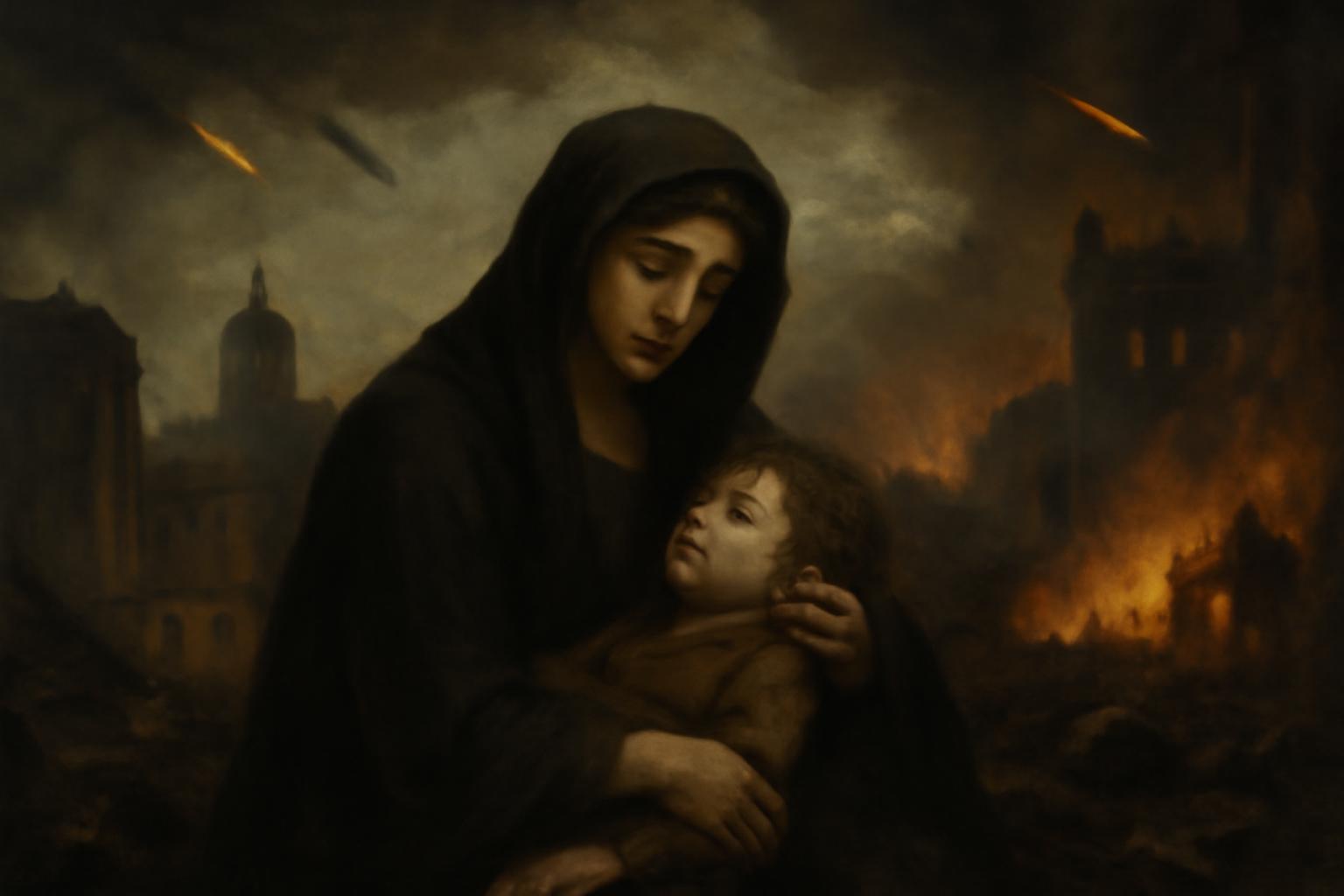In the silent, ashen dawn, once again the world shudders beneath the thunderclap of human folly. The ancient city—Kyiv—where centuries of sorrow and hope have entwined their roots, is brutalized beneath a modern deluge of iron, fire, and despair. The missiles know no innocence; they pluck the six-year-old from his mother’s trembling arms, crush lives into concrete tombs, and set to flame the feeble veins of commerce and warmth. The Solomianskyi and Sviatoshynskyi districts, names once spoken with pride, now become the tragic chorus in a theater of ruin. The rain of steel, indiscriminate, wounds children’s hospitals and kindergartens alike, as if to mock the very future with its spite.
We behold, as in the spectacle of Aeschylus’ tragedies, not catharsis but numb repetition: shattered abodes, mothers wailing, innocents entombed in the debris of their daily existence. The gods, if they ever watched, have long since averted their eyes. The principalities to the east unleash their fury, indifferent to appeals for reason or peace—proving, yet again, the cold aphorism of Nietzsche: “To live is to suffer, to survive is to find some meaning in the suffering.” And yet what meaning is there when the Delphic oracle is replaced by a drone’s dull drone? When global promises of justice disintegrate into a mournful, bureaucratic dust?
Restless powers posture and threaten, their deadlines for peace shriveling from fifty days to ten within the fever-dreams of their own vainglorious self-worship. Trade now exists as a casual weapon, tariffs replacing trust and dialogue, reminders that homo economicus reigns where once the philosopher and poet stood sentinel. On the periphery, retaliation ripples outward: facilities burn, trains halt, the arteries of civilization constricted by a war without purpose, perpetuated by rulers with neither vision nor remorse.
Meanwhile, the ancient contest for land devolves into farce. The town of Chasiv Yar, whose stones already drink deep the blood of so many, becomes a token passed between empires—its strategic value weighed against the uncounted griefs it hath spawned. On both sides, the chorus of denial continues. There is no victory here, only the conjuring of phantoms for television screens and the graves.
The West—those custodians of Enlightenment, Reason, and the soul’s better angels—look on, impotent, their powers scattered by the wind of their own decadence. Modernity, having drowned its gods in shallow puddles of irony, cannot muster the tragic grandeur of the ancients who faced fate with unblinking eyes. Instead, we watch from our illuminated screens, untroubled by the dialectic of fate and error that Nietzsche warned would one day reduce Western man to the "last man," blinking in comfort while the world collapses outside his window.
Thus do we mourn, not only these newest victims, but also the death of hope—eviscerated beneath the roaring engines of progress and cynicism. For what is left but the endless recurrence of violence, abandoned sanctuaries, and the echo of a civilization that, having lost its telos, now reaps only its self-inflicted midnight?
